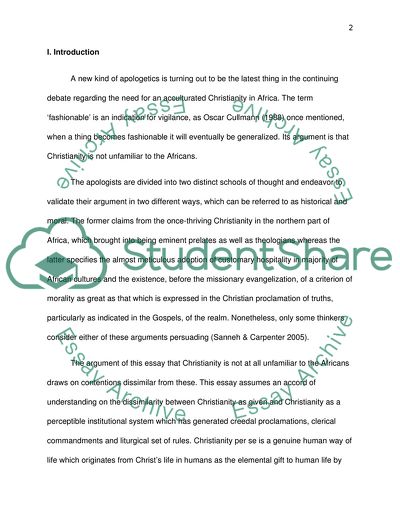Cite this document
(Christianity in Africa Research Paper Example | Topics and Well Written Essays - 2750 words, n.d.)
Christianity in Africa Research Paper Example | Topics and Well Written Essays - 2750 words. Retrieved from https://studentshare.org/religion-and-theology/1722708-christianity-in-africa
Christianity in Africa Research Paper Example | Topics and Well Written Essays - 2750 words. Retrieved from https://studentshare.org/religion-and-theology/1722708-christianity-in-africa
(Christianity in Africa Research Paper Example | Topics and Well Written Essays - 2750 Words)
Christianity in Africa Research Paper Example | Topics and Well Written Essays - 2750 Words. https://studentshare.org/religion-and-theology/1722708-christianity-in-africa.
Christianity in Africa Research Paper Example | Topics and Well Written Essays - 2750 Words. https://studentshare.org/religion-and-theology/1722708-christianity-in-africa.
“Christianity in Africa Research Paper Example | Topics and Well Written Essays - 2750 Words”, n.d. https://studentshare.org/religion-and-theology/1722708-christianity-in-africa.


